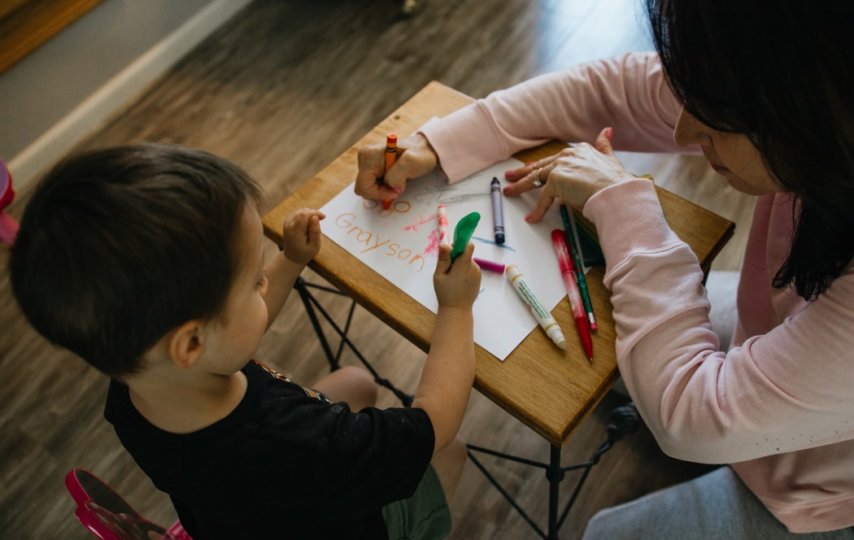Is your child going to kindergarten? That means she’s ready for a new stage in her life, one that’s marked by exploration and growth. As your kid’s motor coordination improves, so too will his sense of identity—his sense of self, of who he is. As a result, his self-reliance and self-confidence will also improve. Going to school also means that your child is now responsible enough to complete assignments and accept more responsibilities at home. To help your child prepare for school, here are a few tips you can do to support his mental as well as educational growth.
Talk to Your Child
Engage your child in conversation always. This will allow your child to practice his verbal responses and to use words to communicate. Be sensitive to his needs, especially at this age. If your child asks, provide an answer as best as you’re able. Conversations help train your child’s communication skills, which help him communicate with his classmates and teachers.
Let Your Child Play
Preparing your child for school doesn’t mean that you should keep him on his books all the time. Make time for play, as it also enhances child development. Besides, too much studying can bore a child, and that will hamper his growth more. Also, it allows your child to improve his motor skills. By practicing the same movements, kids strengthen their muscles and bodies.
Encourage Group Play
Get your child to participate in play dates. Kids need to learn social skills. If they’re an only child, they tend to miss out on early socialization, and that means they’re less likely to know or even recognize the value of sharing—their toys, food, or anything else. That could cause problems at school when they’re asked to share school resources, especially during activities. They might not have the skills yet to deal with other people, too. Reach out to your other parents in your circle and arrange for playdates for your children. Playing games with other kids helps your child learn how to resolve conflicts, how to compromise so he won’t get used to getting his way, and how to say what they want with as little assistance from adults as possible.
Enroll Him in Another Activity
Have your child enroll in another activity. That’s a good practice for going to school. The point of the activity is to provide experiences that you aren’t a part of. That will help him get used to the idea of going to school, even without you there. Some kids cry during their first day in kindergarten when their parents leave them at school. If you don’t want your kid to go through that experience, then take steps to make the transition easy for him. Also, it would be ideal if your child is put in several situations where he has to obey instructions from adults other than his parents. That’s good practice for listening to and obeying his teachers.
Teach Him Independence
Putting your child in an excellent Dubai kindergarten is just one step in a long line of steps to adulthood. But it’s definitely a milestone. Prepare him for this moment by teaching him independence. For instance, train your child to tie his shoes, zip up his coat, or even put on his clothes. Being independent at home will help your child adjust to school where he needs to take care of himself. After all, even if there are teachers, it’s still best if your child knows how to look after his needs instead of being dependent on anyone.
Let Him Ask for Help
Being independent at a young age doesn’t mean that your child can’t ask for help. Make sure he understands that if there’s something he can’t do, or if there’s something he needs help with to go to the teacher and ask. That, or to ask you. Make him feel that it’s normal to ask for help. Too often we think that a child who is independent and no longer needs a parent’s assistance is mature and ideal. But mature kids are still kids. They need your guidance and help. If you make him feel that it’s better that he doesn’t ask for help, then he could grow up thinking that asking for assistance is bad. That’s not the case. Make sure he understands that asking for help is all right.
Keep It Relaxed
Don’t put too much pressure on your child. Kids have different ways of processing and retaining information. If your child isn’t as quick as others in learning the alphabet or the multiplication numbers, that’s all right. Work together with his teacher to discover what teaching methods or styles work for him. Blaming your child or pressuring him too much will only stress him out and lead to dismal results, so don’t do that.



